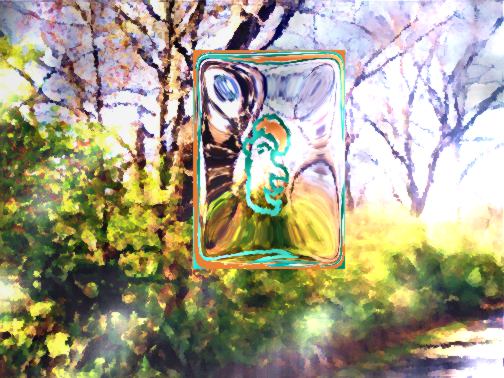Jesus Makes a Splash, Causes Waves
Text and image by Rick McVicar
After Jesus gets done with the wilderness, the Gospel of Mark tells of Jesus walking to the shore of the Sea of Galilee to recruit disciples (1:16-20, NIV).
While the writer may have mixed feelings about nature, Mark definitely has a love for water. Beginning with baptism, Jesus spends a lot of time in and near bodies of water. As will be seen moving throughout Mark’s gospel, traveling to a seashore to find followers would be a natural impulse for Jesus.

This appears rather odd, considering that Jesus was a carpenter’s son. Perhaps Jesus had used his craft to build boats. Understanding Jesus is made difficult because we know so little about his upbringing. What motivates Jesus to go so often towards water? At any rate, developing an environmental ethic with the use of Mark would depend a lot on clean water initiatives.
Recruiting fishermen for disciples is an interesting choice. Jesus appears to be most comfortable with blue collar workers. That makes sense, being a carpenter’s son.
The preference for fishermen, and asking them to “fish for people,” demonstrates a concern for how people get their food (1:17, NIV). Later in the gospel, Mark will have a lot to say about farmers planting seeds. The entire process of eating and acquiring food is a critical point for Mark’s relationship with nature.
In the next story, Jesus drives out a demon from a possessed man (1:1:21-27, NIV). The supernatural in the form of a demon intrudes upon the natural world. Now we know why Mark is not always in sync with nature.